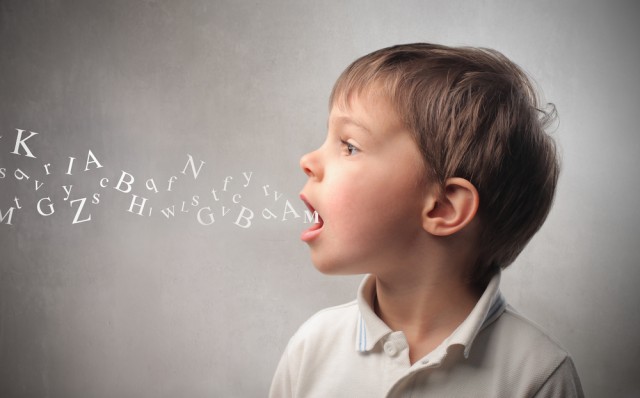Asperger’s syndrome is an Autism Spectrum Disorder (ASD) characterized by difficulty with social interaction, restricted and repetitive patterns of behavior, and limited interests. Children with Asperger’s differ from children diagnosed with autism by their use of language and normal cognitive development. Asperger’s is often seen as a mild form of autism, and has been referred to as, “Autism with language.” Although individuals with Asperger’s acquire language skills, their use of language is slightly different from the typical population. For example, a child with Asperger’s may possess a large vocabulary, but their speech might be characterized by abrupt transitions, inappropriate intonation, literal interpretations, and misunderstandings of metaphorical and figurative language. Basically, the way a person with Asperger’s speaks, and what they choose to talk about, may seem odd to the general population. In addition to issues regarding the use of language, many children with Asperger’s exhibit clumsiness, messy handwriting, sensitivity to certain sounds and textures, and poor time and organizational management.
Asperger’s is a lifelong condition and occurs much more often in boys than girls. Because these children are usually very bright, doctors may not diagnose them until they are in elementary school. If you think your child may have Asperger’s syndrome, here are some things to look for:
- Your child engages in long, one-sided conversations, often about one topic
- Your child does not “get” jokes
- Your child speaks too loud, or too soft, or with a monotonous voice
- Your child displays unusual body language such as lack of eye contact, or awkward movements and mannerisms
- Your child has a preoccupation with narrow subjects, such as basketball statistics, or butterflies.
- Your child does not seem to empathize with other people’s feelings
- Your child is clumsy
Diagnosis
There is no medical test that can diagnose autism, so the primary method for determining if a child has Asperger’s is by behavioral observation. You will probably first see your child’s pediatrician or family doctor, who will likely refer your child to a mental health expert, such as a child psychologist or psychiatrist. Specially trained physicians and psychologists will administer behavioral evaluations before a diagnosis can be made. Only a qualified physician can make a diagnosis of Asperger’s.
After your child is diagnosed, the next step is to contact organizations that offer assessments and/or therapy for children with ASDs. You can either wait for a referral from your pediatrician or look into a private assessment. If you have your child assessed privately, you may be able to avoid long waiting periods. You can Google “treatment for Asperger’s” in your area to find out where your child can get help. For children under 3 years of age, home-based therapeutic programs are usually available, while school-aged children are often offered therapy through the school system.
Treatment
There are many kinds of treatment for ASDs, including occupational therapy, speech therapy, play therapy, behavioral therapy, and counseling. Cognitive behavioral therapy or social skills classes are popular choices for children with Asperger’s since they focus on social skills, self-control of emotions, and teach the child strategies to reduce obsessions and repetitive behaviors.
Costs can be reduced by seeking services through early intervention programs or through the school system. Federal law requires that individuals with disabilities be provided individualized and appropriate education that is research-based and effective. Therefore, it is your child’s right to receive effective intervention. Many insurance plans now cover the treatment of ASDs. Check with your insurance company to determine your child’s benefits. You are also encouraged to take advantage of the huge number of websites, books, and support groups dedicated to coping with Asperger’s syndrome.
Asperger’s can be a tricky diagnosis to get, since it often either co-exists with, or looks similar to other disorders such as ADHD and anxiety. But remember, you are your child’s best advocate! If you feel that your child has Asperger’s, don’t give up! But also remember to take care of yourself. It takes a lot of patience and energy to advocate for your child and help your child reach his or her full potential. Asperger’s need not define your child. Your child is beautiful and unique, with his or her own set of strengths and abilities. With increased self-awareness and therapy, many children and adults can learn to cope with the challenges of Asperger’s syndrome and will go on to excel in school and work, and make great contributions to society.

